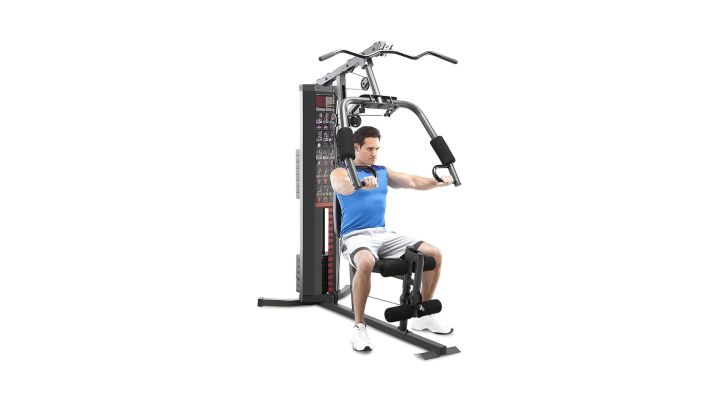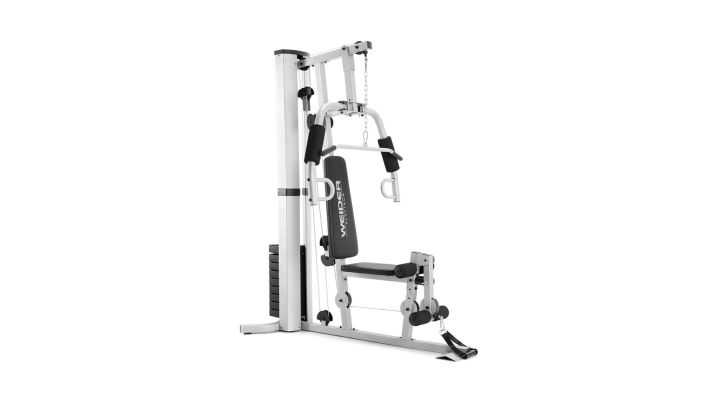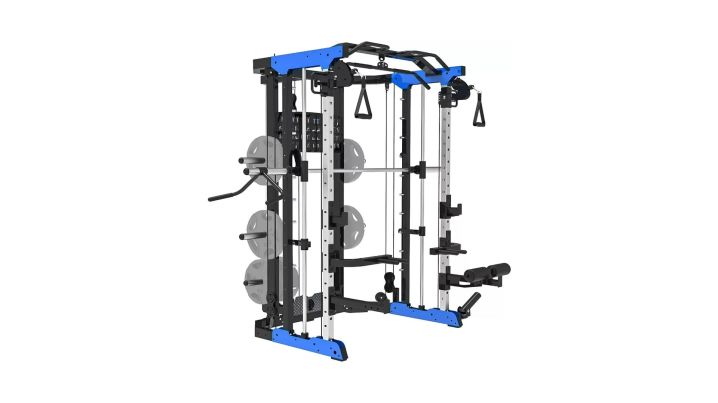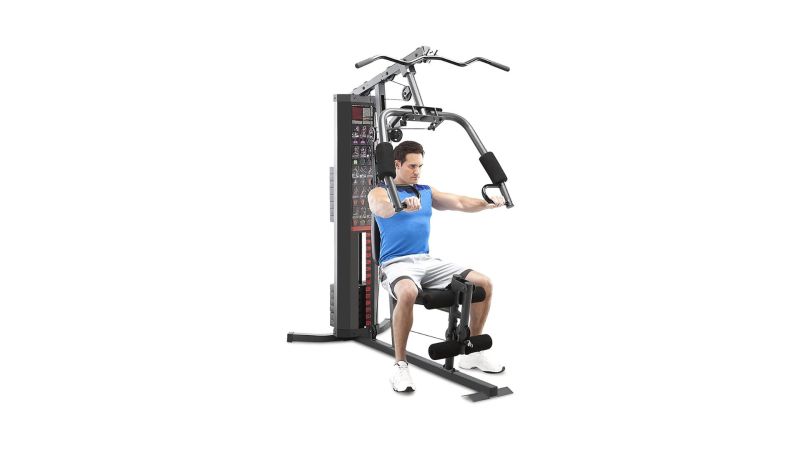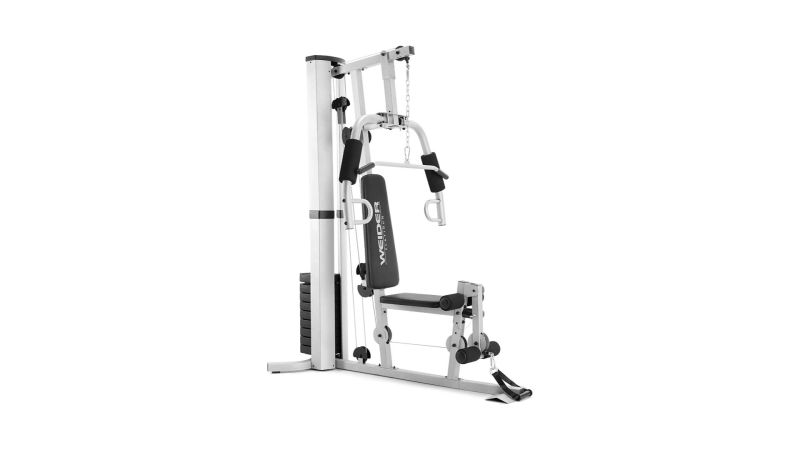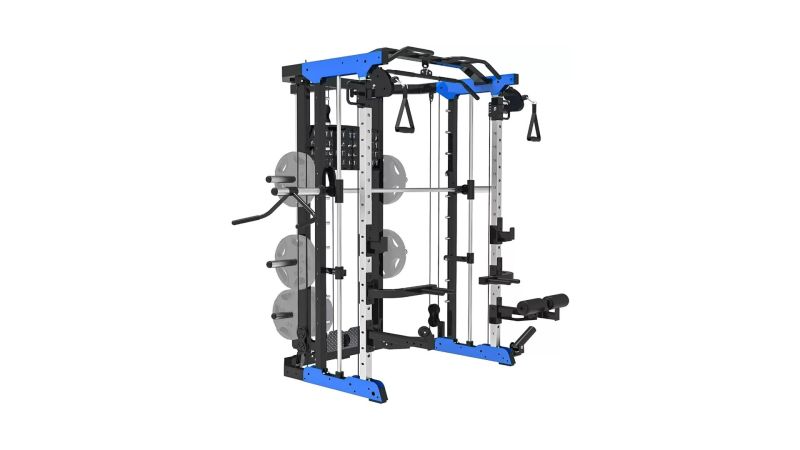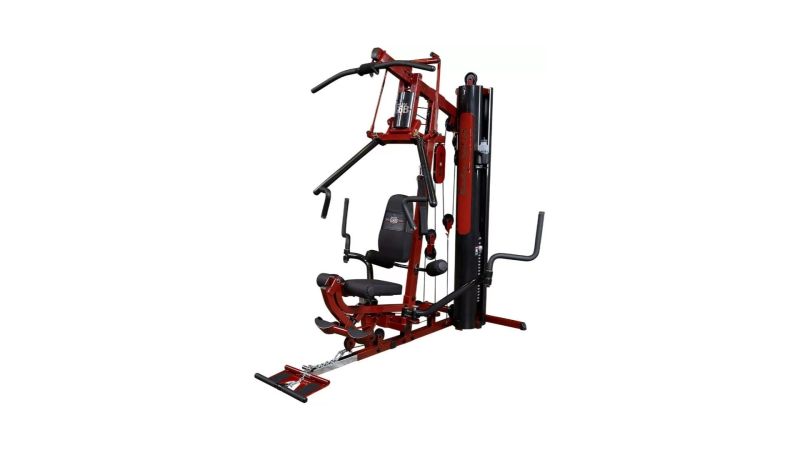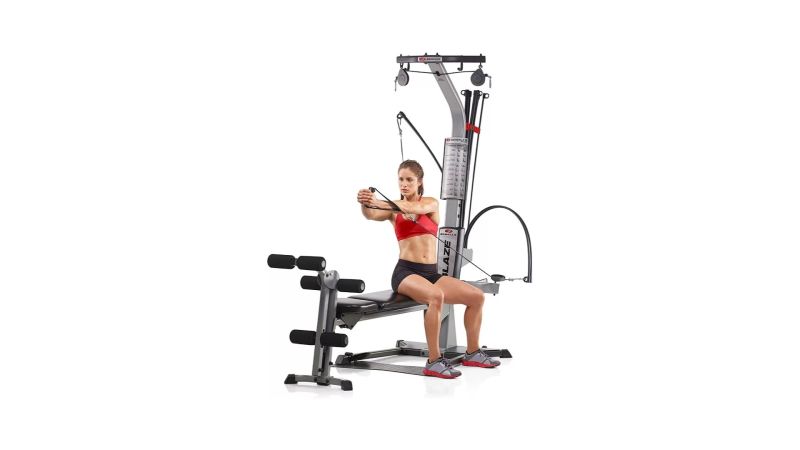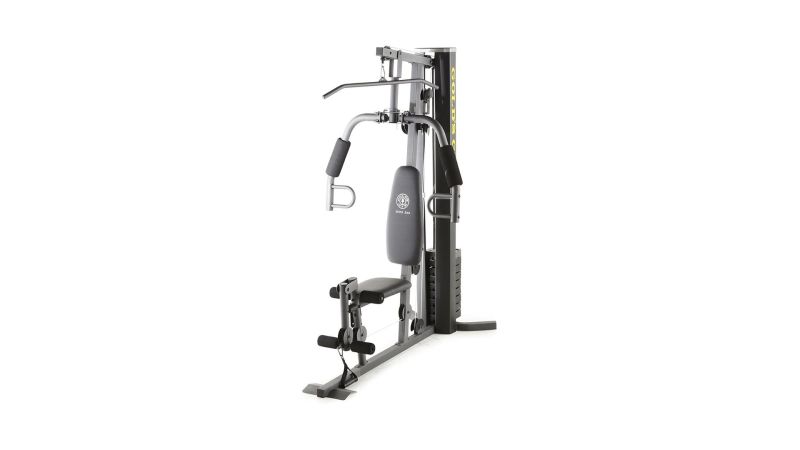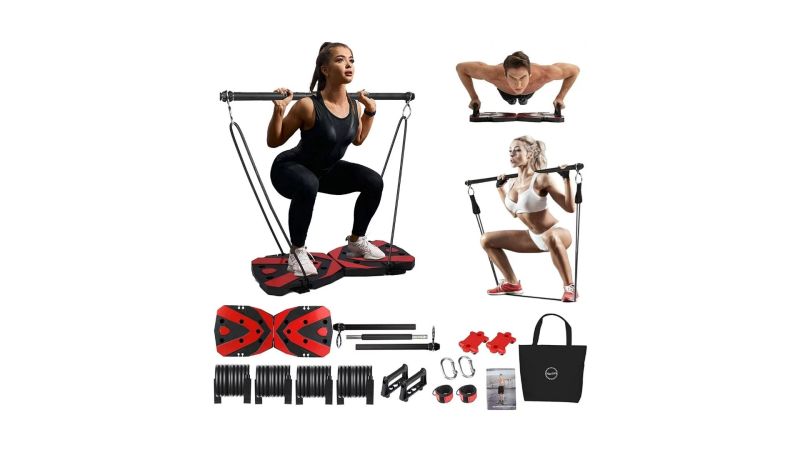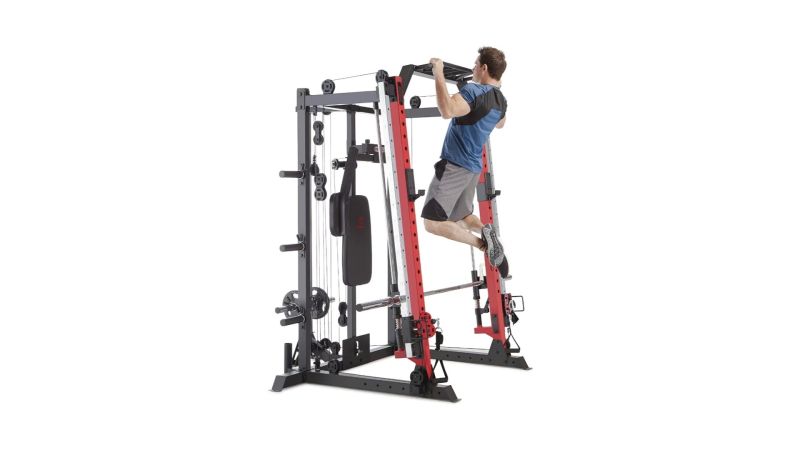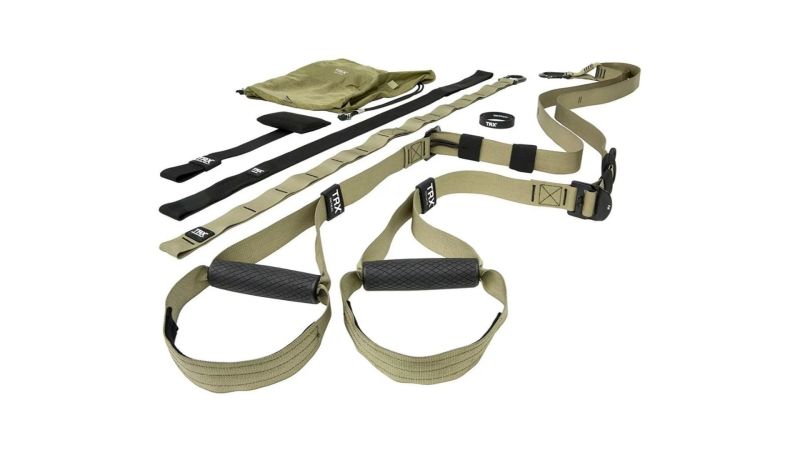We may earn revenue from the products available on this page and participate in affiliate programs.

Want to work out but aren’t a fan of boutique gyms that charge you the GDP of a small country each month and expect you to PR every single class? Maybe you want to be able to just roll out of bed and pound out a few quick sets before starting the day. Maybe you don’t feel like sharing smarmy equipment with people who just sit there posting selfies to their social media in between sets. Whatever your reason for wanting to invest in a home gym, we’ve got your back.
There are so many different set-ups to choose from when it comes to home gyms on the market. In fact, deciding on the ideal one can be somewhat daunting. The home gym that’s ideal for your brother might not be the best one for you, depending on what your primary goals are for owning one in the first place. Not to worry, the crack team at Task & Purpose has done the heavy lifting (get it?) for you and has come up with a diverse list of some of the best home gyms on the market. We’ll have you lifting things up and putting them down in no time.
Best Overall
Marcy 150-lb Multifunctional Home Gym Station
Best Value
Weider Gym
Editor’s Choice
ErKang Olympic Power Cage
Best Splurge
Body-Solid G6BR Bi-Angular Home Gym
Best Design
Bowflex Blaze Home Gym
est for Small Spaces
Gold's Gym XRS 50 Home Gym System
Best Portable
Moulyan Portable Home Gym
Best for Full-Body Workouts
Marcy Smith Machine Cage System Home Gym
Best Suspension Trainer
TRX Tactical Gym Suspension Trainer
Why you should trust us
Trust me, I’m a doctor. No, really, I am. I am a licensed chiropractor with almost 20 years of experience under my belt. Who better to help you pick out appropriate exercise equipment than a legitimate expert in the subject of human health and biomechanics? I have written dozens of health-related articles over the years and have successfully helped hundreds of patients rehabilitate injuries and begin safe, effective workout programs. I hosted a full physical rehab suite in my practice, so you can rest assured that I know a thing or two about high-quality exercise equipment.
Types of home gyms
As you’ve probably noticed, there are several different types of home gyms that offer different set-ups, different exercise experiences, require different space considerations, and come in very different price ranges. Which one is right for you is dependent not only on personal preference, but also budget and ability or skill level.
Body weight machine
Typically, body weight machines also include suspension trainers. They’re any piece of equipment that uses your own body weight as the primary resistance. They’re a great option for people who have very limited space in their homes, people who travel a lot, budget-conscious consumers, and people who don’t want to rely on a ton of equipment.
They’re typically very affordable and portable. They’re suitable for any athlete from beginner to advanced.
Cable machines
Cable machines rely on either a single- or double-stack system of weights attached to a cable and pulley system that is housed inside a set of steel towers. They’re typically very stable and allow you to perform a variety of weighted exercises. Cable machines can run the gamut from very affordable to a major cash investment, depending on the size and quality of the machine you desire.
Cable machines are generally thought to be safer and more stable than free weights, thus minimizing your risk of joint or muscle injury during use.
Rod machines
Rod machines, like the Bowflex system, use a series of resistance rods to simulate weight stacks or create resistance that you must work through in order to complete the exercise. They’re typically very compact and affordable, making them a favorite choice of people who have smaller spaces in their homes or who aren’t looking for a professional-grade, in-home workout experience.
Benefits of home gyms
There are so many benefits to having a gym in your home, that it’s tough to narrow it down to just a few, but we’ve come up with some of our top reasons why you may want to invest in a home gym of your own.
You can customize it
Home gyms can be completely tailored to suit almost any need, space requirement, fitness level, or skill level. Maybe you want some really heavy-duty towers that let you lift a lot of weight. Maybe you need something super compact, light, and portable that you can easily take down and store inconspicuously when not in use. Maybe you need to accommodate for an injury or health issue that doesn’t allow you to do certain exercises. Whatever your needs or wants, there’s a home gym set-up that’s perfect for you.
It’s cheaper in the long run
While home gyms require more of a financial investment at the outset, when amortized over time, a home gym can last for years and save you not only on costly membership fees, but also on wear and tear on your vehicle. With gas prices being what they are, you’ll be saving money with a home gym in no time. Whether you have a membership at an expensive boutique gym or a bargain-basement, budget-friendly facility, you can often pay for your home gym within a year of canceling your gym membership.
Home gyms are convenient
Want to workout at 5 a.m., 11 p.m., or just pound out a few quick sets between conference calls? Having a home gym allows you to do that whenever you want. They’re a major time-saver. You can even workout in your pajamas if you want. Think of all the time saved by not having to get in your car and drive to and from the gym, not having to wait for equipment or the shower, and not having to deal with crowds when you have a gym in your home. The convenience factor of a home gym is often its number one selling point over a traditional gym membership.
Pricing
Budget
Between $100 and $250, you will find most portable gym equipment and many suspension trainers. Highly compact units that don’t take up a ton of space, but still provide a comprehensive workout live in this price point. Also, you can pick up singular-purpose exercise equipment in this price range, like dumbbells, a flat bench, extra bars, etc. in order to supplement an existing piece of equipment in your home.
Mid-range
In the $250 to $500 price range, you will find a lot of compact cable systems that allow you to do several exercises. Higher-end suspension trainers and lower-end rod trainers can also be found in this price range.
Premium
Over $500 is where you will start to see the more heavy-duty and commercial home gyms. Gyms that mimic what you would see at a membership-based club can be found here. Total body gyms, high-end rod trainers, and electronic workout equipment, like elliptical trainers and treadmills, can also be found at this price point. Some pieces of equipment can get really expensive, depending on what you want.
How we chose our top picks
For this list, we wanted to offer a variety of different types of home gyms that would be suitable for all skill levels from beginner to advanced. We also wanted to offer something to suit any budgetary considerations. Portability, reliability, and available warranty also played big roles in what we decided to include on the list. Only those companies with a solid track record of delivering high-quality, reliable fitness equipment that is known in the industry to be safe and long-lasting were included in this round-up.
FAQs on home gyms
You’ve got questions, Task & Purpose has answers.
Q: Are home gyms worth it for beginners?
A: Home gyms are often a great way for beginners to “get their feet wet” when it comes to exercise and proper form. Many newbies find going to a public club daunting and intimidating. They don’t want to look silly or do the exercises the wrong way. In that respect, a home gym can be a great way for a beginner to get comfortable when it comes to getting started on a physical fitness routine.
Q: How much space do you need for a home gym?
A: Depending on the gym you choose, you can do a solid workout in the space between your bed and dresser. Our top portable pick or a suspension trainer lets you turn your living room, hallway, entryway, etc. into a temporary gym space that’s easy to convert back to living space when you’re done with your workout. Heck, you can even turn a doorway into a home gym by simply adding a pull-up bar. Most free-standing, stationary home gyms require a space of at least four feet x four feet in order to allow you enough room to safely perform most of the exercises.
Q: Are home gyms effective?
A: Home gyms are a highly effective means of exercise. Most of them are modeled after commercial gym equipment and strive to offer the same or very similar exercise experiences as what you would get at a commercial gym. Most home gyms also come with tutorial charts, DVDs, or apps that teach you how to properly and safely do the recommended exercises. Some even come with proposed workout routines and meal plans to help you really maximize your home workout results.
